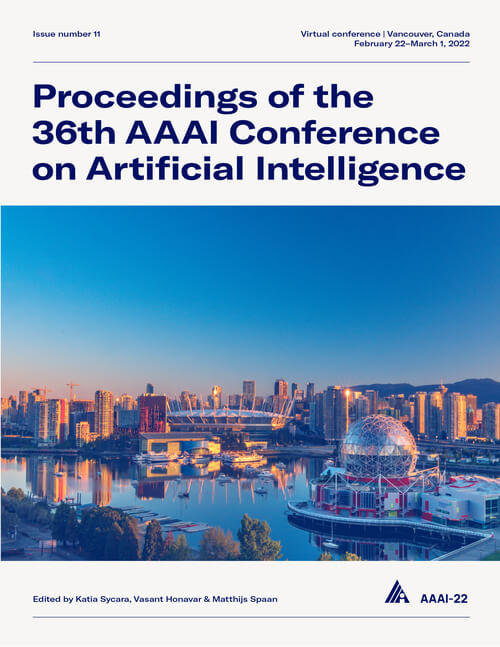Bridging the Gap: Using Deep Acoustic Representations to Learn Grounded Language from Percepts and Raw Speech
DOI:
https://doi.org/10.1609/aaai.v36i10.21335Keywords:
Speech & Natural Language Processing (SNLP)Abstract
Learning to understand grounded language, which connects natural language to percepts, is a critical research area. Prior work in grounded language acquisition has focused primarily on textual inputs. In this work, we demonstrate the feasibility of performing grounded language acquisition on paired visual percepts and raw speech inputs. This will allow human-robot interactions in which language about novel tasks and environments is learned from end-users, reducing dependence on textual inputs and potentially mitigating the effects of demographic bias found in widely available speech recognition systems. We leverage recent work in self-supervised speech representation models and show that learned representations of speech can make language grounding systems more inclusive towards specific groups while maintaining or even increasing general performance.Downloads
Published
2022-06-28
How to Cite
Kebe, G. Y., Richards, L. E., Raff, E., Ferraro, F., & Matuszek, C. (2022). Bridging the Gap: Using Deep Acoustic Representations to Learn Grounded Language from Percepts and Raw Speech. Proceedings of the AAAI Conference on Artificial Intelligence, 36(10), 10884-10893. https://doi.org/10.1609/aaai.v36i10.21335
Issue
Section
AAAI Technical Track on Speech and Natural Language Processing

